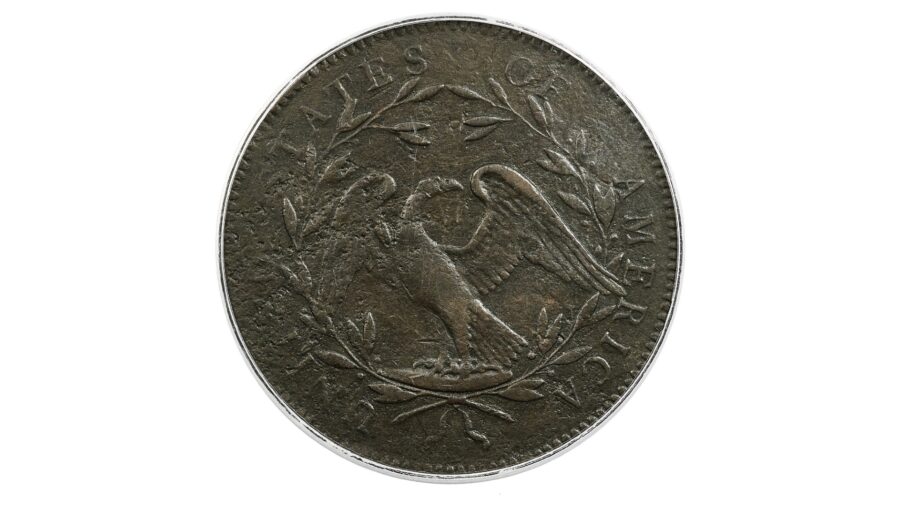A piece of copper that was struck by the U.S. Mint in Philadelphia in 1794 and was a prototype for the fledgling nation’s money will go up for auction Friday.
Businessman and Texas Rangers co-chairman Bob Simpson owns the item, which is known as the “No Stars Flowing Hair Dollar.”
While it closely resembles silver dollars that were later minted in Philadelphia, it gets its name because it is missing stars.
“While subsequent dollar coins struck featuring stars were added to the front of the coin, starless coins are considered by collectors and institutions as one-of-a-kind prototypes for the silver examples that would follow,” said Jacob Lipson of Heritage Auctions.
Heritage Auctions estimates the prototype will sell for between $350,000 and $500,000 when it goes on the block online in Dallas on Friday.
Known as a pattern, the front features the flowing hair portrait of Liberty and the date 1794, while the reverse side shows a small eagle on a rock within a wreath. Similar starless examples are part of the Smithsonian Institution’s National Numismatic Collection.
“It’s incredibly exciting,” said California-based numismatist David McCarthy. “It gives us a view into what was going on inside the Mint in 1794 when it was gearing up to make the first dollars ever struck.”
The pattern was forgotten as the Mint continued the process of creating the nation’s first silver dollars.
“Coin collecting lore states the unique rarity was excavated from the site of the first Philadelphia Mint before 1876,” Lipson said. That was how the coin’s first owner described its history at its first auction appearance in 1890.
The pattern is corroded and not in perfect condition, Lipson said, likely because it was buried at the site of the original Mint. There are some scratches and other marks on its brown surfaces.
It has traded hands eight times, according to the auction house.
Simpson, 73, purchased it along with other patterns in 2008 to add to his large collection. He views himself as a steward and thinks it is time for someone else to enjoy it.
“I think coins should be appreciated almost as artwork,” he said. “I have gotten more than enough joy from them.”
Simpson said he wasn’t wealthy when he started collecting. As a boy, he said he would go to a bank, get a roll of coins and examine them. It was part of the fun he said he has had in this country.
“America is the only place I think where you can travel from near poverty to wealth based on education,” he said.
By Shawn Marsh


